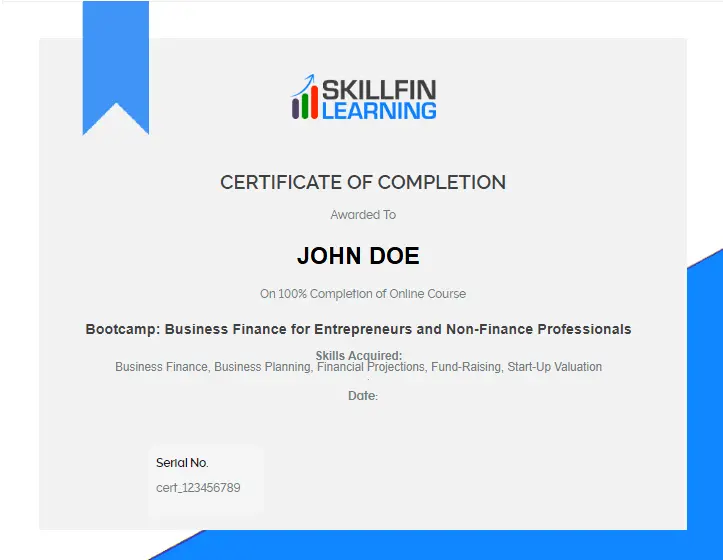Real estate development is an industry with high risk and high reward. There are many factors that determine the success or failure of a real estate project. To be successful, developers must understand and plan for the risks involved. They must develop a strategy to mitigate those risks, should they arise.
So what does it take to become a successful real estate developer? Successful developers have a detailed business plan and know their financial limits. They also know their market inside and out, can identify opportunities, and have partners they trust to help them succeed. Developers must also have the right skillset – not just in terms of construction knowledge but also marketing, networking and business development skills. And lastly, they need to have sufficient capital – either through savings or access to investors – as well
What is a Real Estate Development Model?
A real estate development model is your expected return on investment based on your project costs, revenue projections and profit margin. A typical development model includes a diagram that shows the project’s expected cash flow and how the developer will make money on the project.
It also includes details about project expenses and how the developer will mitigate risk. A careful analysis of the real estate market and demand for the project’s type, location and price is essential to building a successful model. The developer must be able to outline the risks and how he or she will mitigate those potential issues. If a developer fails to account for every possible scenario, he or she runs the risk of project failure and/or losing investors’ money.
Research and Due Diligence
Before investing in a new project, carefully research the real estate market, current and projected lease rates, construction costs and potential competition. Build relationships with local contractors, appraisers and real estate agents to secure the best possible resources for your project.
Attend trade shows, networking events and seminars to meet potential partners and team members. Before committing to a new real estate project, conduct due diligence. This includes obtaining the necessary permits, completing environmental and historical site surveys, hiring contractors to conduct site surveys, and obtaining an appraisal to determine the project’s construction costs.
Networking and Partnerships
Although many real estate developers work on projects alone, others choose to partner with another developer or real estate company. Partnerships allow developers to share the risks and responsibilities of the project, while also gaining access to additional resources and expertise.
Before choosing a partner, conduct thorough background checks and reference checks to ensure you’re partnering with someone you can trust. Real estate networking groups also provide opportunities for developers to find partners for their projects. Join your local chapter of CREW (Commercial Real Estate Women) or other industry networking groups to meet other developers and discuss potential partnerships.
Real estate crowdfunding platforms are another way to find partners for your project. Funding platform investors provide a portion of the project’s funding in exchange for a share of the project’s profits.
Developing A Strategy
Before beginning a new project, developers must develop a strategy to mitigate risk. This includes choosing the right project type and size, selecting the ideal location and choosing the best construction partners. Using a construction management firm (CM) on your project can reduce risk by managing the contractor selection process, construction schedule and contractor payments.
A CM can also help you navigate the permitting and code compliance process. Developers should also create a detailed project budget that accounts for potential cost overruns. This budget can help you solicit investors and raise capital for the project. Project budgets often include a cash flow statement that indicates where the money comes from and where it goes.
Define The Game Plan
To succeed in real estate development, developers must have the right strategy. Successful strategies are based on market research and knowing your market inside and out. To succeed, developers must be able to identify profitable opportunities and understand their construction and profit margins. To be successful, developers must also be able to: – Identify profitable opportunities
– Successful developers are able to identify profitable opportunities in their real estate market. This includes identifying the right project type and size, as well as the right location for the project. They also know their construction margins and how their project will meet market demand.
– Have a clear understanding of their project – Successful developers have a clear understanding of the project they’re building and its potential return on investment. – Be able to effectively communicate with clients – Successful developers are able to effectively communicate with clients and team members. This includes being able to construct and execute on a clear project vision.
– Be flexible – Successful developers are flexible enough to pivot if necessary and respond to changes in the real estate market. – Be able to manage risk – Successful developers are able to manage risk throughout the project life cycle. This includes risk management during the pre-construction phase and managing contractor risk during construction. – Understand their financial limits – Successful developers understand their financial limits and have a clear understanding of how much money they’re willing to invest.
Solid contracts with trusted partners
Contracts are important in any business partnership, but they are especially important in real estate, where projects often involve a significant amount of money. Before partnering with contractors and suppliers, developers should complete thorough background checks and have a solid contract in place.
This contract should include the expected deliverables and payment schedule for each party. For joint venture agreements, developers should complete a partnership agreement that outlines each party’s contributions and shares of the profits. This agreement should also outline the exit strategy for each party if the partnership ends.
The importance of price positioning
Price positioning refers to how developers price their projects and the effect this has on their sales. Successful developers understand their market and are able to price their projects at a rate that makes them appealing to buyers and investors.
This includes understanding how the market will view their project based on its price point and how this may affect sales. Real estate developers should also be able to justify their price points. This includes being able to explain why their project is priced at a certain level, as well as how they arrived at this number.
Risk management and exit strategies
Construction is a risky business. Developers must understand the risks associated with their projects and create a strategy to mitigate these risks. This includes managing the construction process and contractor relationships. Successful developers have an exit strategy for all of their projects.
This includes having a contingency plan in place for every project type, knowing the market and being able to adjust if necessary. Real estate investors are attracted to projects with low risk. Developing a project that mitigates risk is easier said than done. There is no easy way to mitigate risk, but there are things that can help.
A few simple things that can help reduce risk are obtaining permits, hiring a qualified contractor, and getting an appraisal. Permits ensure that a project is being built correctly and is safe. Contractors ensure that the job is being done correctly. An appraisal ensures that the property is worth what is being paid.
Know Your Limits
Real estate development is an industry with high risk and high reward. There are many factors that determine the success or failure of a real estate project. To be successful, developers must understand and plan for the risks involved. They must develop a strategy to mitigate those risks, should they arise.
So what does it take to become a successful real estate developer? Successful developers have a detailed business plan and know their financial limits. They also know their market inside and out, can identify opportunities, and have partners they trust to help them succeed.
Developers must also have the right skillset – not just in terms of construction knowledge but also marketing, networking and business development skills. And lastly, they need to have sufficient capital – either through savings or access to investors – as well as an exit strategy for when the time comes to cash out.
Conclusion
Real estate development is a risky business that requires meticulous planning, attention to detail and risk mitigation. While there are many factors that can affect project success, the best way to mitigate risk is by having a detailed business plan and solid contracts with trusted partners.
Successful developers also understand their market inside and out and know their construction and profit margins. They are able to identify profitable opportunities and have an exit strategy for all of their projects.






11 thoughts on “5 Steps to Developing a Successful Real Estate Development Model”
Thank you for your sharing. I am worried that I lack creative ideas. It is your article that makes me full of hope. Thank you. But, I have a question, can you help me?
Great post! I really appreciate the way you explained the topic.
Your article helped me a lot, is there any more related content? Thanks!
Thank you for your sharing. I am worried that I lack creative ideas. It is your article that makes me full of hope. Thank you. But, I have a question, can you help me?
Can you be more specific about the content of your article? After reading it, I still have some doubts. Hope you can help me.
520229 980078I dont generally comment but I gotta state thanks for the post on this fantastic 1 : D. 288727
306082 112805Hey really good weblog!! Man .. Beautiful .. Remarkable .. I will bookmark your web site and take the feeds alsoIm satisfied to seek out numerous useful information here in the post, we need to have develop a lot more techniques on this regard, thanks for sharing. 915387
Your point of view caught my eye and was very interesting. Thanks. I have a question for you.
Thanks for sharing. I read many of your blog posts, cool, your blog is very good.
Thank you for your sharing. I am worried that I lack creative ideas. It is your article that makes me full of hope. Thank you. But, I have a question, can you help me?
Thank you for your sharing. I am worried that I lack creative ideas. It is your article that makes me full of hope. Thank you. But, I have a question, can you help me?